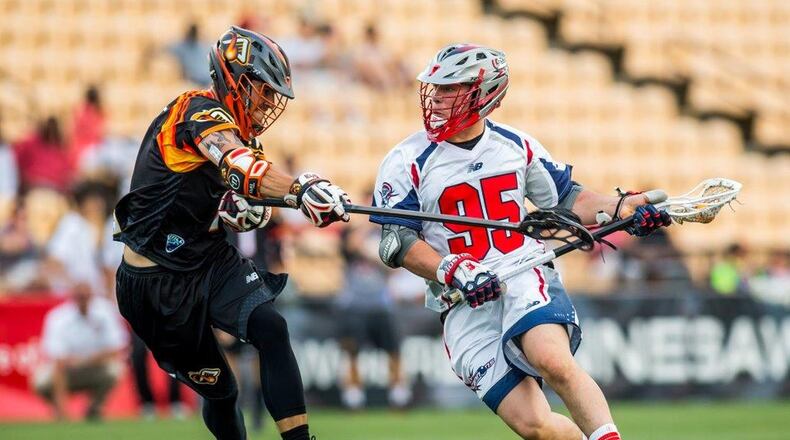My father, Randy Ratliff, was a two-time All-American and two-time captain at the University of Maryland (1976-79). He was a stud, my idol and the genesis for my love of lacrosse.
I played in the Atlanta Youth Lacrosse program at Murphey Candler Park in Brookhaven. The game was so new to Atlanta that the league only had three other teams, meaning we played each other over and over throughout the spring. I didn’t care, though. I had fallen in love with the game. From that experience, my goal became clear-cut: follow in my father’s footsteps and play NCAA Division I lacrosse at Maryland.
I would come to find that my goal would be much more difficult to achieve than I thought. Foremost, I was from Atlanta and despite my legacy as the son of an All-American, no college program wanted me. Atlanta was not known for producing blue-chip lacrosse athletes, no matter whose son I was.
As my vision of playing lacrosse at Maryland slowly diminished, my focus changed. I determined to prove everyone wrong. The kid from Atlanta could play and my goals changed to reflect that: become an All-American at a Division I program somewhere and be a two-time captain at that program.
It wasn’t long before I found a school willing to bet on me. I headed for Loyola University in Baltimore. And even though I was almost 600 miles away, the spirit and support of Atlanta never left me.
My junior year we finished the regular season 14-1 and ranked No. 1 in the country. And I was named team co-captain.
The week leading up to the 2012 NCAA Final Four was awesome. Texts, phone calls, local media, social media — the support I received was overwhelming, but nonetheless reassuring. I knew that anyone who knew anything about lacrosse in Atlanta was behind me, which meant everything.
A sport that had just recently been sanctioned during the Georgia High School Association was featured on the front page of The Atlanta Journal-Constitution, the story about a midfielder from Walton High School who could become the first player from the state to play on a national championship team. That midfielder: me.
Loyola emerged victorious from the NCAA Tournament, beating Maryland 9-3 in the finals. We were crowned NCAA champions.
Following the tournament, the All-America team was named and I was on it. A piece of that chip on my shoulder fell off that day. But I wasn’t done. I still had more to prove.
My senior year, I was again captain and an All-American. I improved statistically in all categories. I had finally done it. I had achieved my goals and followed in the footsteps of my hero.
Upon graduation and after playing two years as a professional with the Boston Cannons in the Major League Lacrosse team, the league made an announcement that would change my life. In 2016, the MLL would be adding an expansion team in the South and Atlanta, my hometown, was the chosen city.
It seemed serendipitous.
Here was my chance to give back to the growing lacrosse community that had given everything to me. It was community that taught me how to play, how to win and, sometimes, how to lose. It was where I trained with the best athletes throughout high school. It was the Atlanta that motivated me to prove every D-I coach wrong.
I knew that I had to be on that roster. And just as I hoped, I got the call. It is for me, the most poetic finish to a long journey, from playing before make-believe crowds against pine-tree defenders. But I had come full circle.
It would be the proudest moment of my lacrosse career: captain of the Atlanta Blaze. Our next game is Saturday against Charlotte at Kennesaw State’s Fifth Third Bank Stadium.
About the Author
Keep Reading
The Latest
Featured

